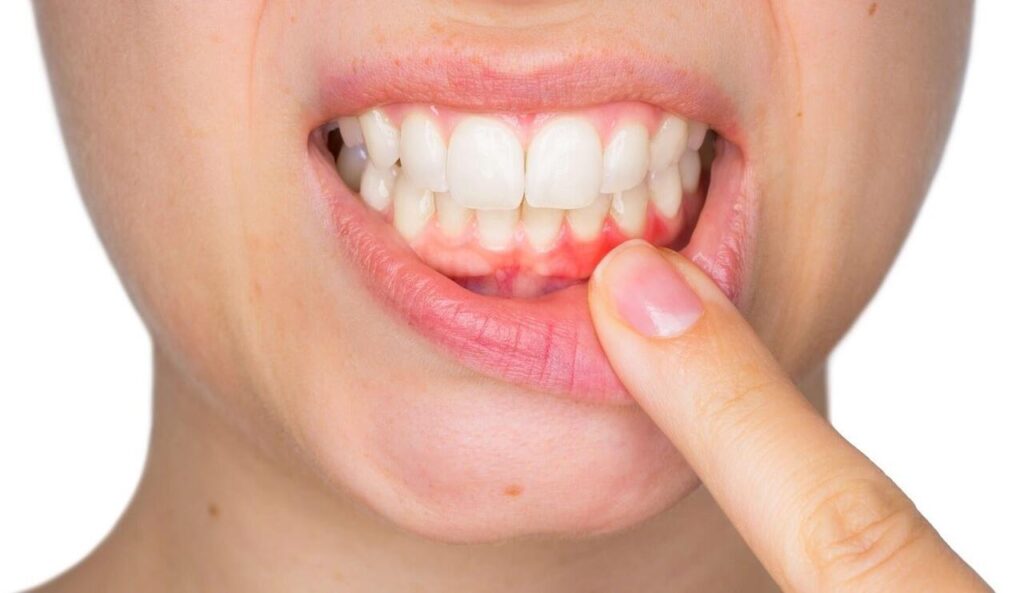Gum disease, also known as periodontal disease, is a common oral health condition that affects the gums and surrounding tissues. It can lead to symptoms such as gum inflammation, bleeding, bad breath, and even tooth loss if left untreated. While it’s always best to seek professional dental care for gum disease, there are steps you can take at home to improve your oral health. In this article, we will provide a comprehensive guide on how to cure gum disease without a dentist, focusing on user-friendly methods.
Understanding Gum Disease
Before diving into the remedies, it’s important to understand the different stages of gum disease:
1. Gingivitis: This is the initial stage of gum disease and is characterized by inflamed gums that may bleed during brushing or flossing. Gingivitis is reversible with proper care.
2. Periodontitis: If left untreated, gingivitis can progress to periodontitis. In this stage, the inner layer of the gum and bone pull away from the teeth, forming pockets that become infected. Periodontitis can lead to bone and tooth loss.
While self-care methods can help manage mild cases of gum disease, it’s essential to consult a dentist for professional evaluation and treatment.
Effective Home Remedies for Gum Disease
1. Good Oral Hygiene: Maintaining proper oral hygiene is crucial for preventing and managing gum disease. Brush your teeth at least twice a day with a soft-bristled toothbrush and fluoride toothpaste. Don’t forget to gently brush along the gumline. Additionally, floss daily to remove plaque and debris from between your teeth.
2. Saltwater Rinse: A saltwater rinse can help reduce inflammation and control bacteria in your mouth. Dissolve half a teaspoon of salt in warm water and swish it around your mouth for 30 seconds before spitting it out. Repeat this several times a day.
3. Oil Pulling: Oil pulling involves swishing oil around your mouth to improve oral health. Take a tablespoon of coconut, sesame, or olive oil and swish it in your mouth for 10-15 minutes. Spit out the oil and rinse your mouth thoroughly with water. This practice helps reduce harmful bacteria and plaque buildup.
4. Antiseptic Mouthwash: Using an antiseptic mouthwash can help control bacterial growth in your mouth. Look for a mouthwash containing ingredients like chlorhexidine or essential oils like tea tree oil. Rinse your mouth as instructed on the product label.
5. Warm and Cold Compresses: Applying warm and cold compresses alternately to your face can help reduce gum inflammation and alleviate discomfort. Use a cloth soaked in warm water or a cold pack wrapped in a thin towel and hold it against the affected area for 10-15 minutes at a time.
6. Healthy Diet: A nutritious diet plays a vital role in maintaining good oral health. Consume foods rich in vitamins C and D, as well as calcium, which support gum health and strengthen teeth. Avoid sugary and acidic foods that can contribute to plaque buildup.
7. Quit Smoking: If you smoke, quitting is crucial for gum disease management. Smoking weakens the immune system and hinders the healing process, making it harder to treat gum disease effectively.
8. Stress Reduction: Chronic stress can affect your oral health by increasing inflammation in the body. Engage in stress-reducing activities such as exercise, meditation, or hobbies to promote overall well-being, including gum health.
When to Seek Professional Dental Care
While these home remedies can help manage mild cases of gum disease, it’s important to recognize when professional dental care is necessary. Consider scheduling an appointment with a dentist if:
- Your symptoms worsen or persist despite self-care efforts.
- You experience severe pain, tooth sensitivity, or loose teeth.
- Your gums are severely swollen or bleeding heavily.
- You have difficulty eating or speaking due to gum disease symptoms.
A dentist will be able to assess the severity of your gum disease and provide appropriate treatments such as deep cleaning (scaling and root planing), antibiotic therapy, or surgical intervention if required.
Conclusion
While professional dental care is essential for effectively treating gum disease, there are steps you can take at home to manage mild cases and promote oral health. Maintaining good oral hygiene practices, using home remedies like saltwater rinses and oil pulling, adopting a healthy diet, and reducing stress can all contribute to gum disease management. However, it’s important to consult a dentist if your symptoms worsen or persist. By combining proper self-care with professional dental guidance, you can effectively address gum disease and maintain a healthy smile.
Read Also:



